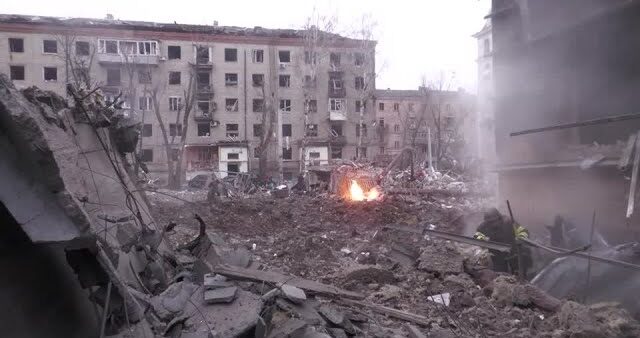United Nations experts determined a North Korean missile struck Ukraine, implicating possible violations of international sanctions by Pyongyang and Moscow
A United Nations report has confirmed that fragments of a missile recovered in Kharkiv, Ukraine, were from a North Korean-made Hwasong-11 ballistic missile. This discovery points to a significant breach of international sanctions imposed on Pyongyang. The UN sanctions monitors, after a detailed examination, delivered their findings to the UN Security Council, highlighting a potential violation that could escalate tensions further.
The debris was analyzed by a team of three UN sanctions monitors who visited Ukraine to inspect the fragments firsthand. Their investigation revealed that the missile parts did not match Russian military technology, bolstering claims by Ukrainian authorities that the missile originated from North Korea. Despite the clear origins of the missile, the monitors were unable to conclusively determine the launch site or the identity of those who launched it.
Information provided by Ukraine suggests that the missile was launched from within Russian territory. If this is accurate, it could indicate that Russian forces are using North Korean military hardware in the ongoing conflict in Ukraine, a situation that would constitute a direct violation of the arms embargo against North Korea. This scenario aligns with previous accusations by the United States and other nations, which have charged that North Korea has been supplying weapons to Russia for use in its military actions against Ukraine.
This revelation comes at a crucial time, as the UN panel of experts, responsible for monitoring these sanctions, faces uncertainty about its future. Russia recently vetoed the annual renewal of this panel, potentially undermining efforts to oversee and enforce sanctions effectively. The current mandate for this body is set to expire imminently, raising concerns about the continuation of such oversight.
The confirmation of a North Korean missile in Ukraine marks a worrying development in the conflict, suggesting an international dimension that could complicate diplomatic relations further. Both North Korea and Russia have previously denied transferring military equipment for use in the Ukraine conflict, despite pledging last year to deepen military cooperation.
This situation leaves the international community at a crossroads, facing critical decisions about how to respond to these breaches of sanctions. It also underscores the complex nature of the war in Ukraine, which now involves elements of global geopolitical tensions beyond the immediate region
